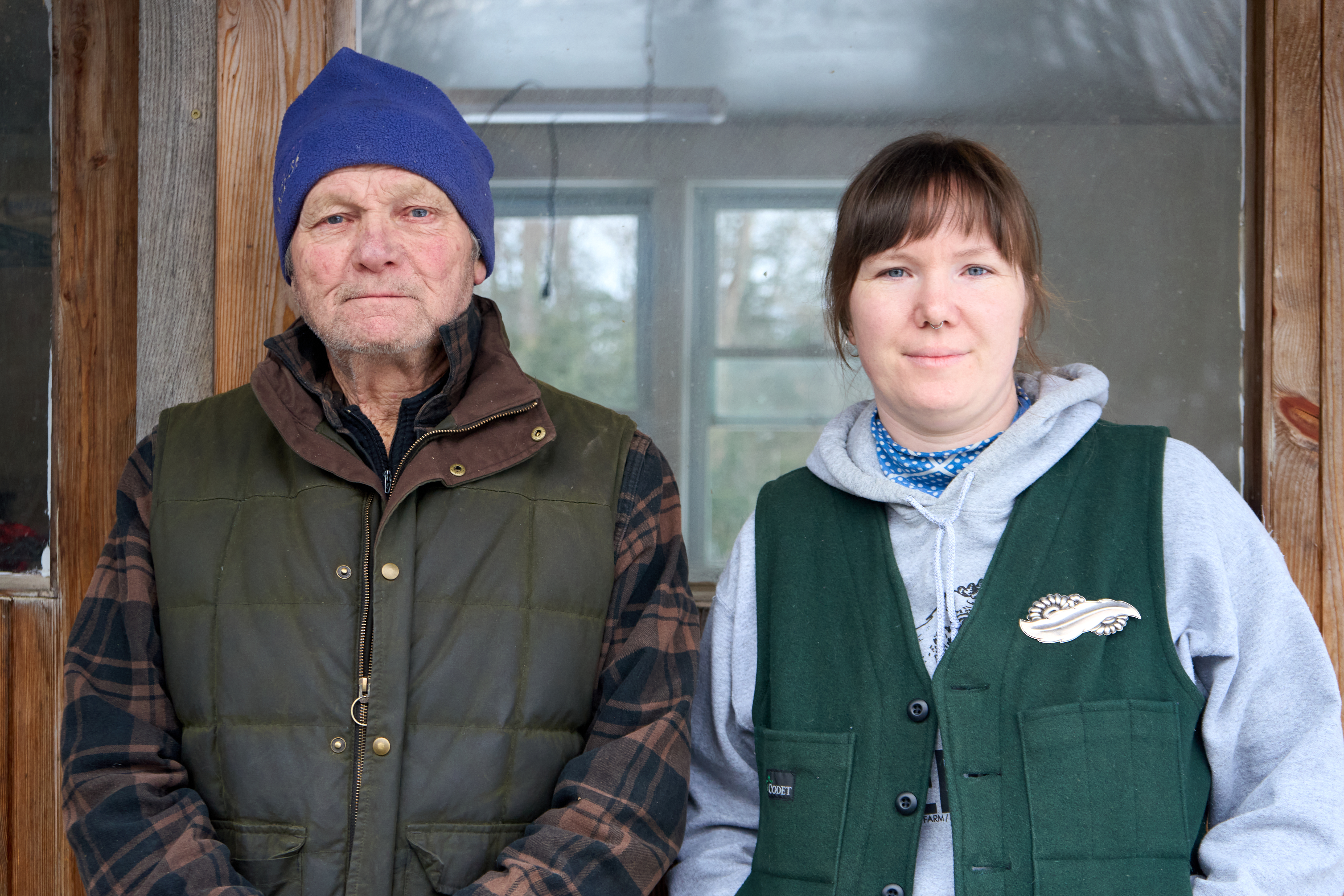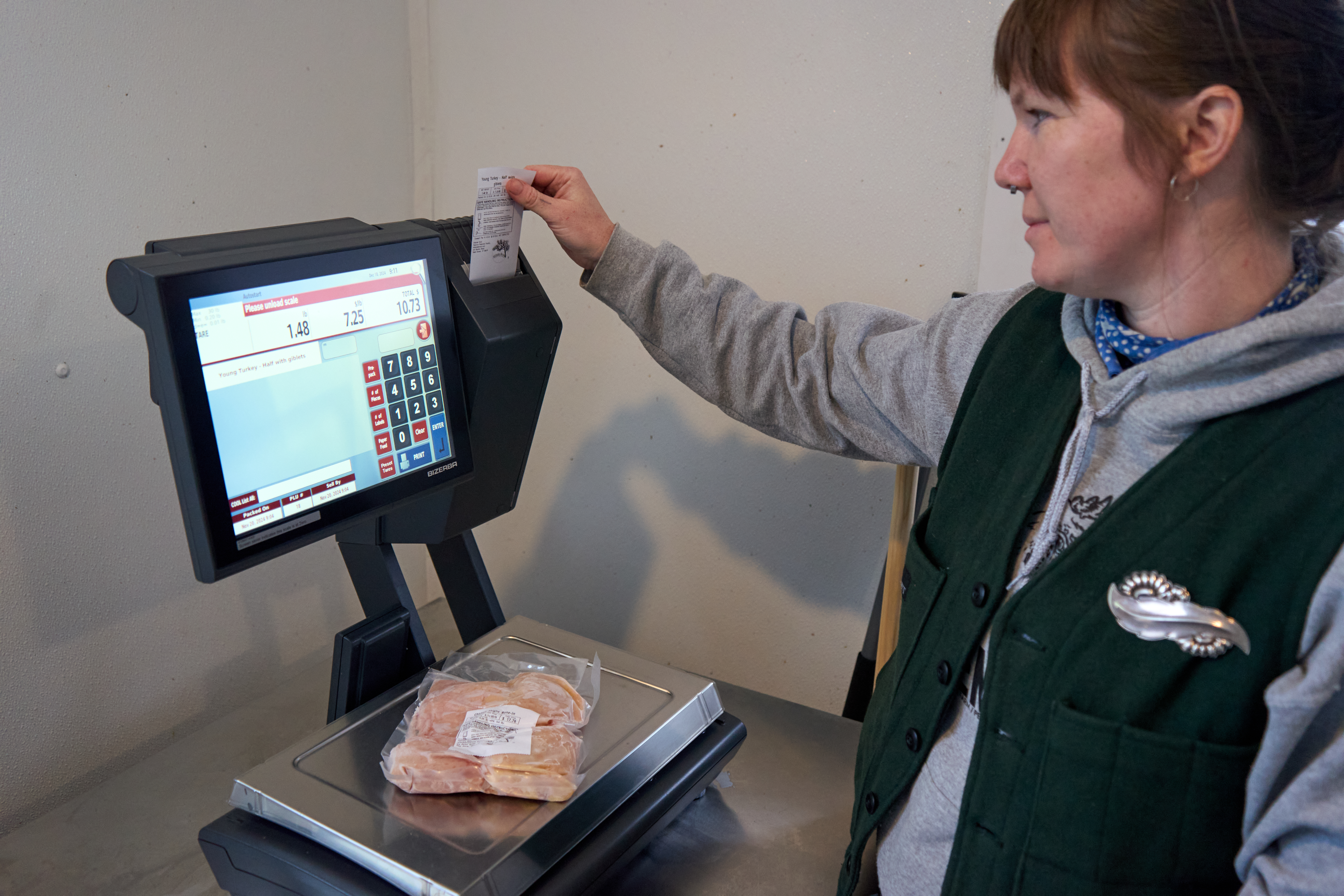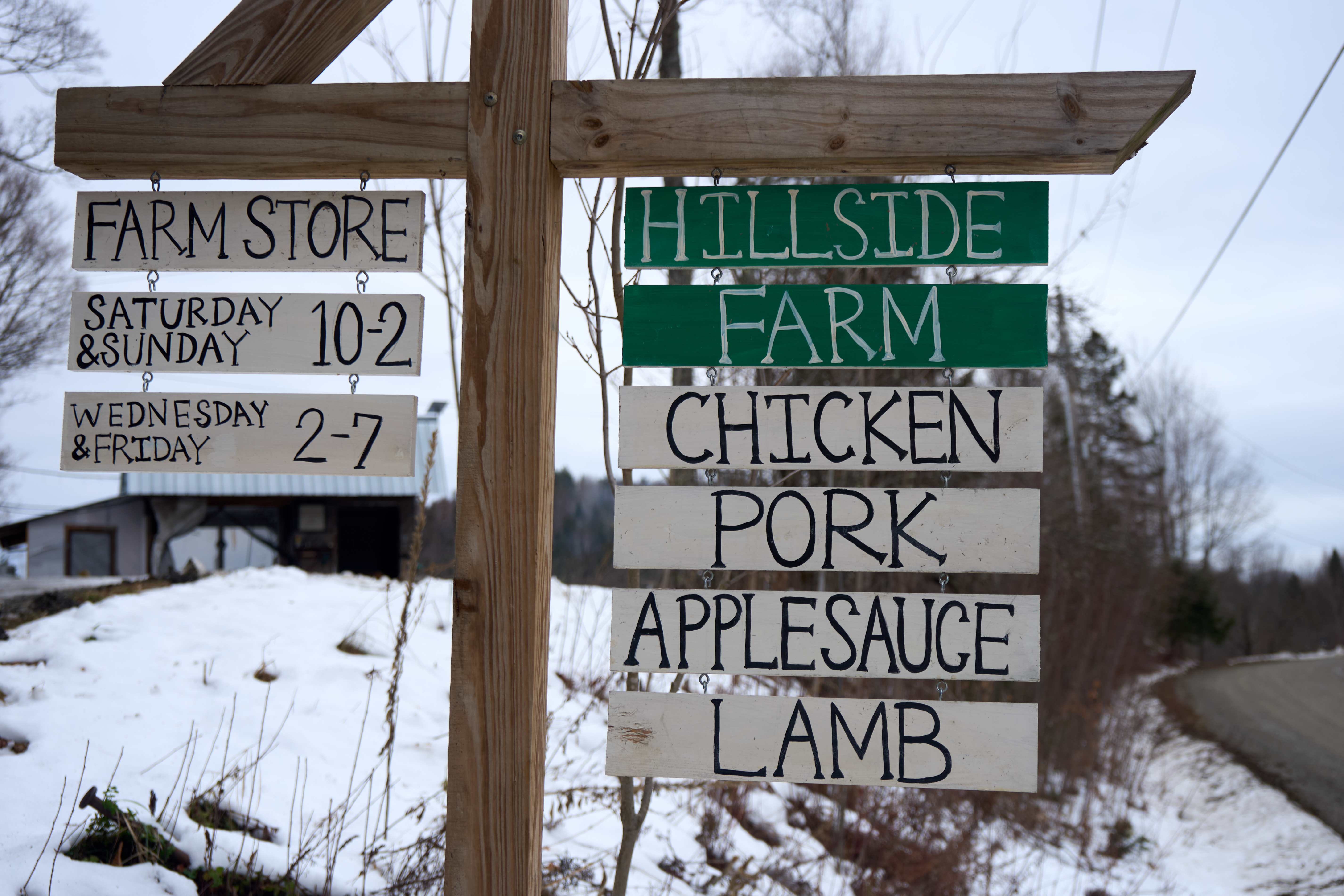
A recent change in Vermont law has created new opportunities for small-scale poultry farms processing under the Vermont Poultry Exemptions from Inspection program. Previously, these producers were limited to processing only whole birds for sale directly to consumers. Now, chickens can be processed into parts on farms, too. To help these farms take advantage of this new opportunity, the Working Lands Enterprise Initiative (WLEI) lost no time, and in Fiscal Year 2024, strategically invested in two poultry businesses, including Hillside Farm in East Albany, so they could quickly take advantage of this new market opportunity.
“Our customers really appreciate that we sell whole birds because it makes it way more affordable for them,” said Hannah Pearce, co-owner of Hillside Farm, which was founded by her father, Bill Pearce, in 2012. “But they have to learn how to either cut up their own bird or roast a chicken and have it not go to waste, and not everyone can do that.”
To sell chicken parts, the farm was previously required to send birds to an off-site USDA facility, a process that was both logistically and financially challenging. “The cost of getting them slaughtered and cut up at an outside facility was really expensive,” Hannah explained. “I would sell out every year on the popular cuts, and the margin wasn’t great, but it brought people to my farm stand, which was great.”
Hillside Farm is now processing chicken parts on the farm, thanks to a WLEI grant used to purchase essential equipment, including a vacuum sealer, refrigeration, and a stainless-steel worktable.

On-farm processing has improved margins while providing greater flexibility and responsiveness to customer preferences. “My customers already expected me to have cuts at the farmers market, but by doing it ourselves, we’re able to respond much better,” Hannah said. “For example, people don’t want whole legs, but they love thighs, so we’ll process more thighs…we can sell the excess drumsticks to a local restaurant for a fried chicken night.”
The new equipment also allowed Pearce to hire several part-time workers to assist with chores and processing. “The cutting makes us more agile in how we’re selling, and we always have stock,” Hannah added. “My cut sales now make up 20 percent of the business and are more than two and a half times what they were the year before, with the capacity to grow every year.”
In 2024, Hillside Farm processed over 700 birds on-site, up from 500 the previous year because of their ability to better meet customer needs. They hope to surpass 1,000 birds in 2025 to meet increasing demand at farmer's markets and through their farm stand.
Thanks to the new grant-funded refrigeration units through the Center for an Agricultural Economy, the 150 to 200 visitors who come to the farm stand annually can now self-serve and grab cuts of other meats like pork, turkey, and lamb, which were previously only available at the farmer's market.
Reflecting on the challenges and rewards of her work, Hannah said, “Being able to feed people is huge. It’s hard, frustrating, and sometimes really isolating. But I get to be on this land that I love, I get to feed people, and I think there’s extreme value in the work.”

